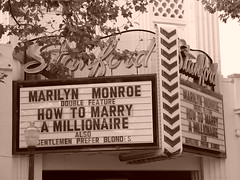As the Enlightenment faded in the early nineteenth century, professionalization set in. You can follow the process by comparing the Encyclopédie of Diderot, which organized knowledge into an organic whole dominated by the faculty of reason, with its successor from the end of the eighteenth century, the Encyclopédie méthodique, which divided knowledge into fields that we can recognize today: chemistry, physics, history, mathematics, and the rest. In the nineteenth century, those fields turned into professions, certified by Ph.D.s and guarded by professional associations. They metamorphosed into departments of universities, and by the twentieth century they had left their mark on campuses…
Along the way, professional journals sprouted throughout the fields, subfields, and sub-subfields. The learned societies produced them, and the libraries bought them. This system worked well for about a hundred years. Then commercial publishers discovered that they could make a fortune by selling subscriptions to the journals. Once a university library subscribed, the students and professors came to expect an uninterrupted flow of issues. The price could be ratcheted up without causing cancellations, because the libraries paid for the subscriptions and the professors did not. Best of all, the professors provided free or nearly free labor. They wrote the articles, refereed submissions, and served on editorial boards, partly to spread knowledge in the Enlightenment fashion, but mainly to advance their own careers.
The result stands out on the acquisitions budget of every research library: the Journal of Comparative Neurology now costs $25,910 for a year’s subscription; Tetrahedron costs $17,969 (or $39,739, if bundled with related publications as a Tetrahedron package); the average price of a chemistry journal is $3,490; and the ripple effects have damaged intellectual life throughout the world of learning. Owing to the skyrocketing cost of serials, libraries that used to spend 50 percent of their acquisitions budget on monographs now spend 25 percent or less. University presses, which depend on sales to libraries, cannot cover their costs by publishing monographs. And young scholars who depend on publishing to advance their careers are now in danger of perishing.
…
The eighteenth-century Republic of Letters had been transformed into a professional Republic of Learning, and it is now open to amateurs—amateurs in the best sense of the word, lovers of learning among the general citizenry. Openness is operating everywhere, thanks to “open access” repositories of digitized articles available free of charge, the Open Content Alliance, the Open Knowledge Commons, OpenCourseWare, the Internet Archive, and openly amateur enterprises like Wikipedia. The democratization of knowledge now seems to be at our fingertips. We can make the Enlightenment ideal come to life in reality.
…
What provoked these jeremianic- utopian reflections? Google. Four years ago, Google began digitizing books from research libraries, providing full-text searching and making books in the public domain available on the Internet at no cost to the viewer. For example, it is now possible for anyone, anywhere to view and download a digital copy of the 1871 first edition of Middlemarch that is in the collection of the Bodleian Library at Oxford. Everyone profited, including Google, which collected revenue from some discreet advertising attached to the service, Google Book Search. Google also digitized an ever-increasing number of library books that were protected by copyright in order to provide search services that displayed small snippets of the text. In September and October 2005, a group of authors and publishers brought a class action suit against Google, alleging violation of copyright. Last October 28, after lengthy negotiations, the opposing parties announced agreement on a settlement, which is subject to approval by the US District Court for the Southern District of New York.[2]
The settlement creates an enterprise known as the Book Rights Registry to represent the interests of the copyright holders. Google will sell access to a gigantic data bank composed primarily of copyrighted, out-of-print books digitized from the research libraries. Colleges, universities, and other organizations will be able to subscribe by paying for an “institutional license” providing access to the data bank. A “public access license” will make this material available to public libraries, where Google will provide free viewing of the digitized books on one computer terminal. And individuals also will be able to access and print out digitized versions of the books by purchasing a “consumer license” from Google, which will cooperate with the registry for the distribution of all the revenue to copyright holders. Google will retain 37 percent, and the registry will distribute 63 percent among the rightsholders.
Meanwhile, Google will continue to make books in the public domain available for users to read, download, and print, free of charge. Of the seven million books that Google reportedly had digitized by November 2008, one million are works in the public domain; one million are in copyright and in print; and five million are in copyright but out of print. It is this last category that will furnish the bulk of the books to be made available through the institutional license.
Many of the in-copyright and in-print books will not be available in the data bank unless the copyright owners opt to include them. They will continue to be sold in the normal fashion as printed books and also could be marketed to individual customers as digitized copies, accessible through the consumer license for downloading and reading, perhaps eventually on e-book readers such as Amazon’s Kindle.
After reading the settlement and letting its terms sink in—no easy task, as it runs to 134 pages and 15 appendices of legalese—one is likely to be dumbfounded: here is a proposal that could result in the world’s largest library. It would, to be sure, be a digital library, but it could dwarf the Library of Congress and all the national libraries of Europe. Moreover, in pursuing the terms of the settlement with the authors and publishers, Google could also become the world’s largest book business—not a chain of stores but an electronic supply service that could out-Amazon Amazon.
An enterprise on such a scale is bound to elicit reactions of the two kinds that I have been discussing: on the one hand, utopian enthusiasm; on the other, jeremiads about the danger of concentrating power to control access to information.
…
Google is not a guild, and it did not set out to create a monopoly. On the contrary, it has pursued a laudable goal: promoting access to information. But the class action character of the settlement makes Google invulnerable to competition. Most book authors and publishers who own US copyrights are automatically covered by the settlement. They can opt out of it; but whatever they do, no new digitizing enterprise can get off the ground without winning their assent one by one, a practical impossibility, or without becoming mired down in another class action suit. If approved by the court—a process that could take as much as two years—the settlement will give Google control over the digitizing of virtually all books covered by copyright in the United States.
…
Google alone has the wealth to digitize on a massive scale. And having settled with the authors and publishers, it can exploit its financial power from within a protective legal barrier; for the class action suit covers the entire class of authors and publishers. No new entrepreneurs will be able to digitize books within that fenced-off territory, even if they could afford it, because they would have to fight the copyright battles all over again. If the settlement is upheld by the court, only Google will be protected from copyright liability.
Google’s record suggests that it will not abuse its double-barreled fiscal-legal power. But what will happen if its current leaders sell the company or retire? The public will discover the answer from the prices that the future Google charges, especially the price of the institutional subscription licenses. The settlement leaves Google free to negotiate deals with each of its clients, although it announces two guiding principles: “(1) the realization of revenue at market rates for each Book and license on behalf of the Rightsholders and (2) the realization of broad access to the Books by the public, including institutions of higher education.”
What will happen if Google favors profitability over access? Nothing, if I read the terms of the settlement correctly. Only the registry, acting for the copyright holders, has the power to force a change in the subscription prices charged by Google, and there is no reason to expect the registry to object if the prices are too high. Google may choose to be generous in it pricing, and I have reason to hope it may do so; but it could also employ a strategy comparable to the one that proved to be so effective in pushing up the price of scholarly journals: first, entice subscribers with low initial rates, and then, once they are hooked, ratchet up the rates as high as the traffic will bear.








